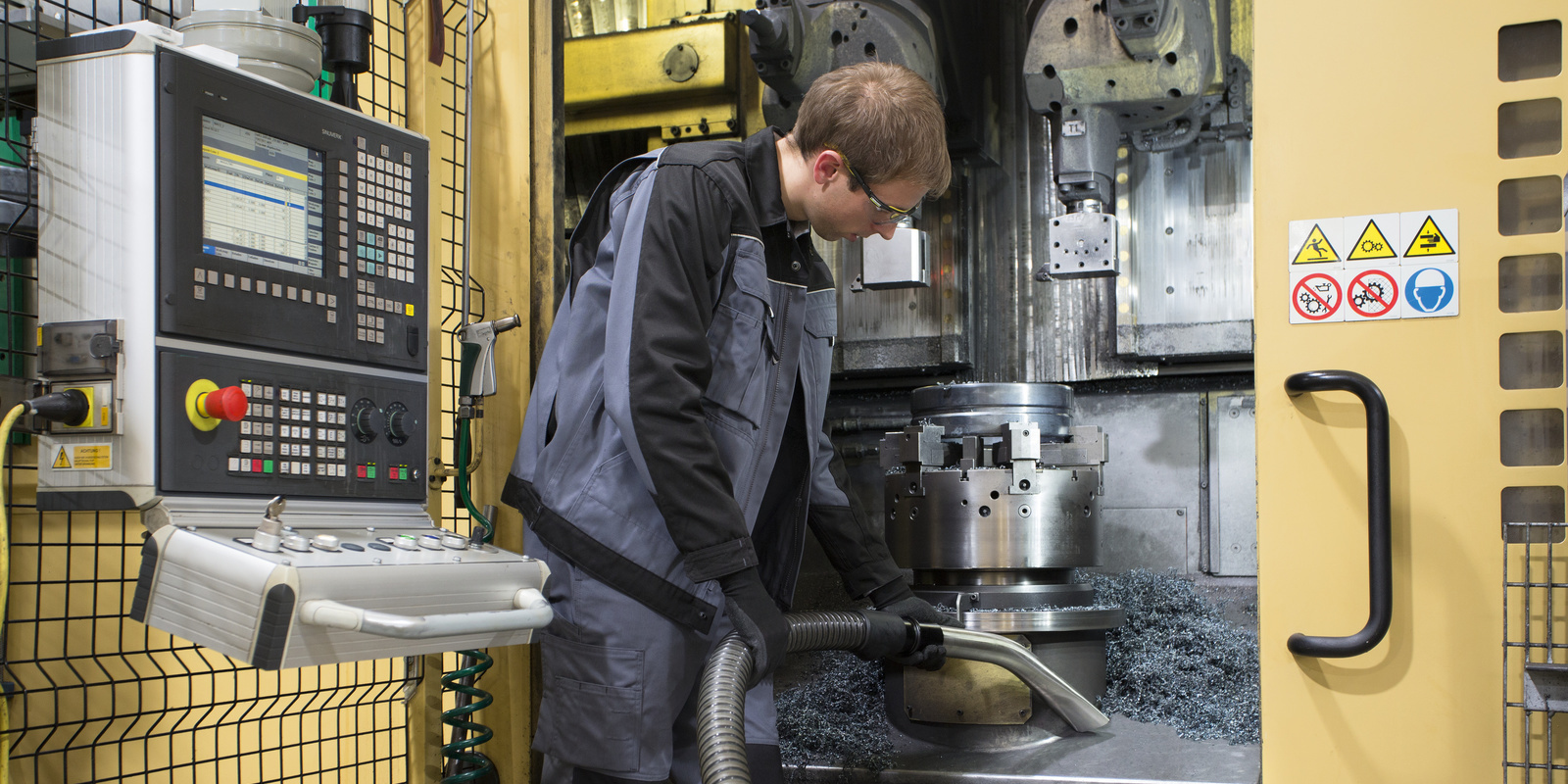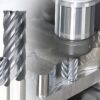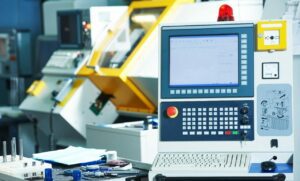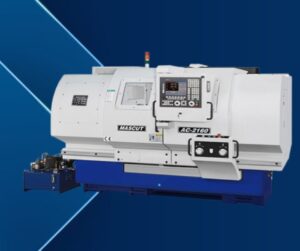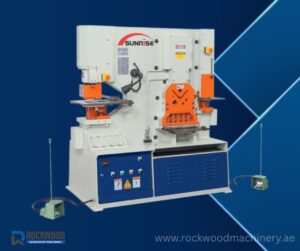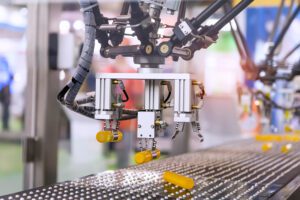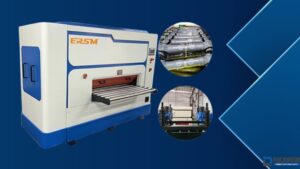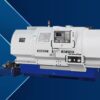Preventing Industrial Vacuum Cleaner Breakdowns in Warehouses
In the busy industrial scene of the UAE, maintaining cleanliness and hygiene in warehouses is very important. Although industrial vacuum cleaners are essential for this procedure, frequent breakdowns tend to be triggered by the extreme conditions found in UAE warehouses. It is necessary to guarantee smooth warehouse operations by knowing the reasons behind machine breakdowns and taking steps to prevent them. Here, we discuss the common reasons for breakdowns in industrial vacuum cleaners in UAE warehouses and offer practical solutions to keep them running efficiently.
Common Causes of Breakdown in Industrial Vacuum Cleaners in UAE Warehouses
1. Extreme Temperatures
UAE has extreme heat with temperatures raised above 40°C during the summer season, and it is hard on industrial vacuum cleaners. Overheating can cause motors to fail, components to melt, and overall efficiency to drop. Without proper cooling, these machines can quickly wear out.
2. Dust and Sand Infiltration
Warehouses in the UAE, especially those located in desert areas, frequently face the challenge of excessive dust and sand. This fine debris can get inside the vacuum cleaner, clog filters, and damage the motor. This will block the performance and also lead to frequent maintenance issues.
3. Improper Maintenance
One of the most important reasons for industrial vacuum cleaner failure is careless routine maintenance. Without routine checks and servicing, dirt accumulates, filters clog, and parts wear out. Avoiding these little faults could lead to more significant ones and costly repairs.
4. Overloading and Misuse
Industrial vacuum cleaners are built for heavy-duty tasks, but they have limits. Overloading the machine or utilizing the machines for inappropriate tasks can result in motor burnout, broken belts, and other mechanical failures. Using the vacuum cleaner for tools or surfaces that are not meant to be cleaned with it can lead to irreparable harm.
5. Poor Quality Equipment
Another leading factor of breakdown is the use of poor-quality equipment. There is no one-size-fits-all industrial vacuum cleaner. Going for a low budget with less quality machines will also have regular breakdowns and early death. High-quality machines from a reputable industrial equipment supplier in UAE go a long way in influencing performance and durability.
How to Avoid Breakdowns in Industrial Vacuum Cleaners
1. Regular Maintenance
Creating a regular upkeep plan is important to avoid breakdowns. This should involve lubricating moving parts, repairing damaged parts, cleaning filters, and inspecting for wear and tear. These routine maintenance procedures help us keep our equipment operating smoothly and efficiently, increase its lifespan, and lower the likelihood of expensive repairs by addressing small concerns before they become big ones.
2. Proper Training
Proper training for all users of vacuum cleaners is vital to prevent damage and overload. Training should include how to use, understanding the capacity limits, and the performance of simple maintenance procedures only. Skilled personnel will correctly operate the machinery and identify potential issues early on. Maintenance enhances efficiency and provides safety and productivity in workplaces.
3. Invest in Quality Equipment
Investment in quality industrial vacuum cleaners from a reliable industrial equipment supplier in the UAE pays off in the long run. Investing in superior equipment that is tested to perform in adverse conditions in high-frequency use will ultimately save you money. Making it in the best way possible consists of a lot of research and connecting with suppliers who are recognized for durable and long-lasting products. This strategy will guarantee that you receive the best equipment and assist you in sustaining your business’ peak productivity and performance throughout time.
4. Use Appropriate Equipment for the Task
Different industrial vacuum cleaners are built for doing different tasks, such as cleaning up fine dust, heavy debris, or liquids. Make sure to choose a vacuum cleaner that’s perfect for your needs to prevent overloading and damage. This will extend the machine’s lifespan and improve its efficiency.
5. Monitor Operating Conditions
Observe the working environment and make any required modifications. If the warehouse temperature is extremely high, consider using the vacuum cleaner during cooler parts of the day or providing additional cooling. Reducing dust and sand infiltration in the environment can also help protect the equipment.
6. Regular Inspections
Regular inspections can help you to identify possible problems before they become breakdowns. Check the vacuum cleaner for wear indicators, odd sounds, or problems with operation. Frequent inspections minimize unplanned breakdowns and enable quick fixes.
7. Use Proper Accessories
Breakdowns can be avoided by using the proper attachments and accessories for your industrial vacuum cleaner. For example, the engine can be protected, and clogging avoided using a heavy-duty filter made for fine particles. Make sure all the accessories you use with your machine are compatible and right for the job.
Industrial vacuum cleaners are the most wanted machines that are used to keep warehouses clean. However, they frequently break down due to the demanding operating conditions and high volume of use in these settings. The industrial vacuum cleaners in UAE warehouses do not break down the same day you purchase them, and if you know the reason they break down and schedule maintenance accordingly, you will extend the lifespan of the vacuum cleaner for years. Routine servicing, proper training of personnel, investing in high-quality components, and continuously monitoring the operational parameters are the best methods to reduce any chances of incurring expensive repairs and downtime. Also, a long-term association with a renowned industrial equipment supplier in UAE provides access to high-quality products and expert advice that maximize the reliability and efficiency of industrial vacuum cleaners.
Read also : Improving Productivity with Carbide Application Equipment in the Metalworking Industry

